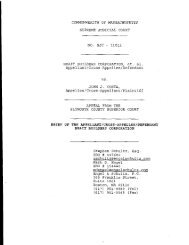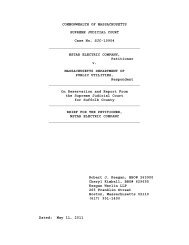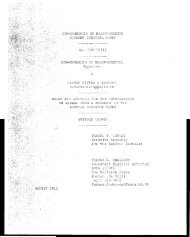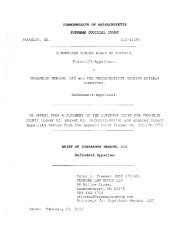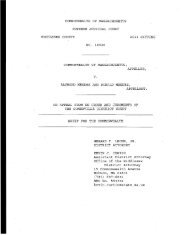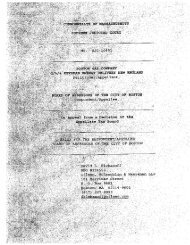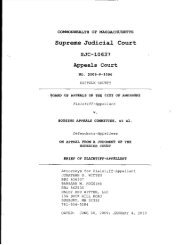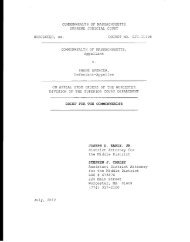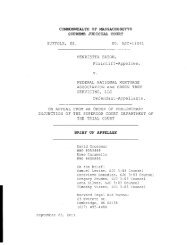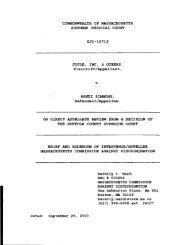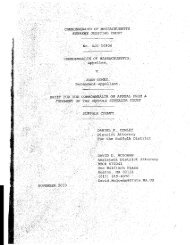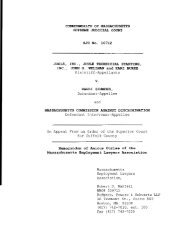462 Mass. 1 Appellant Ray Brief - Mass Cases
462 Mass. 1 Appellant Ray Brief - Mass Cases
462 Mass. 1 Appellant Ray Brief - Mass Cases
You also want an ePaper? Increase the reach of your titles
YUMPU automatically turns print PDFs into web optimized ePapers that Google loves.
-6-<br />
See Commonwealth v. Haley, 413 <strong>Mass</strong>. 770, 779 (1992)<br />
("The purpose of the charge is to instruct the jury<br />
concerning their decision making process in the event<br />
it appears the jury may be deadlocked").<br />
Although the jury had previously submitted two<br />
notes, these notes contained questions about the<br />
evidence and the law applicable to the case. Despite<br />
the judge's finding that "[i]n light of all of the<br />
communications from the jury and all of the other<br />
circumstances ... a Tuey-Rodriguez charge would entail<br />
a serious risk of jury coercion," neither of the two<br />
previous notes indicated that the jury was experiencing<br />
any difficulty with the deliberation process (R. 19).<br />
The judge's concern for coercion is simply not<br />
supported by the record.<br />
Not only did the judge not provide the jury with<br />
the Tuey-Rodriguez instruction, the judge also failed<br />
to take any other measures to ensure that the jury was<br />
truly deadlocked before aborting the trial over the<br />
defendant's objection. The judge did not conduct any<br />
inquiry with the jury to determine whether any further<br />
instructions or deliberations would be likely to<br />
resolve the deadlock. Contrast United States v.



